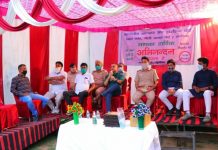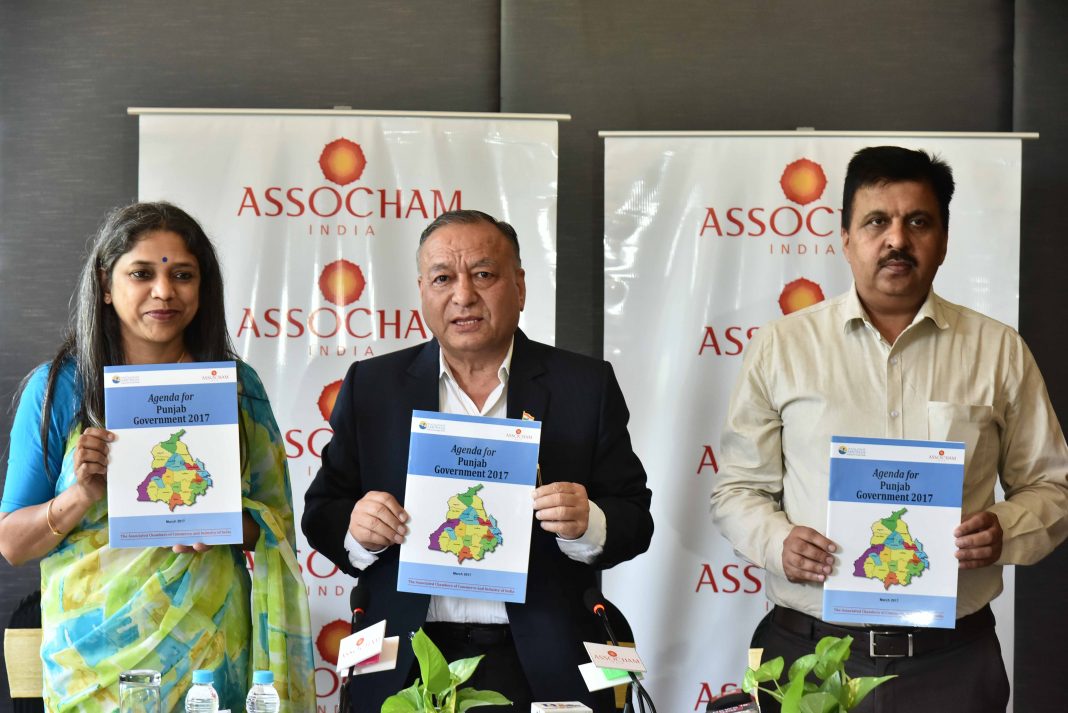
Chandigarh
18 May 2017
DIVYA AZAD
Apex industry body ASSOCHAM has mooted a proposal to the newly elected government of Punjab for announcement of comprehensive industrial policy to bring back the glory of ‘Sher-E-Punjab’ hub for small medium enterprise (SMEs) and value addition to agriproducts.

In a joint vision paper for the new government brought out by the ASSOCHAM and Thought Arbitrage Research Institute (TARI) which was released by ASSOCHAM National Secretary General Mr. D S Rawat and Ms. Kshama V Kaushik, Director, TARI at a press conference here in Chandigarh.
The policy should focus on activities relating top reservation, farm products, horticulture, livestock products like milk and other dairy items, cotton and textiles etc. which have strong backward and forward linkages in the state’s economy.
According to the paper, Punjab needs to promote less-water guzzling crops like pulses, oilseeds, cotton, maize, millet, vegetables and fruits – by providing improved seeds and ensuring that farmers get a fair price for these crops through a market support mechanism. The area under paddy cultivation should be reduced and high value crops like cotton, fruits, vegetables, canola, menthe, turmeric etc. should be grown to raise their share of cropping area from 3.4%.
Ad-hoc policies like ban on export of food grains, limits on private stocking and tax on purchase of food grains (14.4%) should be revisited and withdrawn wherever possible. The fertilizer subsidy policy needs to be revisited to achieve balanced use of nutrients and subsidy should be transferred directly to the farmers.
Incentivise technology like direct seeding of paddy and drip irrigation which saves 30-50% of water. More investment needed in production and promotion of organic manure, bio-pesticides to cut down use of chemical pesticides linked to the spread of cancer. Also, Implement National Policy for Crop Residue 2014 which suggests suitable legislation, adoption of technical measures and training on crop residue management to eliminate crop residue burning.
To reduce farmers’ indebtedness, private moneylenders should be registered and regulated and instead of debt waiver schemes, state should find ways to expand institutional credit facilities; APMC Act should be amended to allow farmers to sell directly to food processing industry while ensuring that no hoarding of essential items take place. Punjab should join National Agriculture Market which provides e-mandis across the country to ensure better price realisation and soil testing facilities
The financial incentives – like exemption or concessions in stamp duty, property tax etc. – should be extended to existing units which are fighting for survival. Also bring parity in tax structure and match financial incentives offered by rival states like Himachal Pradesh, Maharashtra, Gujarat, Madhya Pradesh to become more competitive, adds paper.
Develop labour intensive technologies suitable for growth of MSMEs and support with adequate infrastructure to overcome problems of poor labour productivity and obsolete technologies. The state needs to take advantage of natural resources to promote farm products, horticulture, livestock products, manufacturing of textiles, machinery, motor vehicle, food processing etc. since these have strong linkages with the state’s economy, noted the ASSOCHAM study.
Tourism is another area which has huge potential but remains neglected. Health services too have been neglected which is strange given the high incidence of drug addiction and cancer and high cost of hospitalisation. The health infrastructures like PHCs and CHCs, availability of doctors etc. have witnessed sharp decline. There is a need to substantially increase public investment in health but the new government should better form a comprehensive health policy for the state first.















































